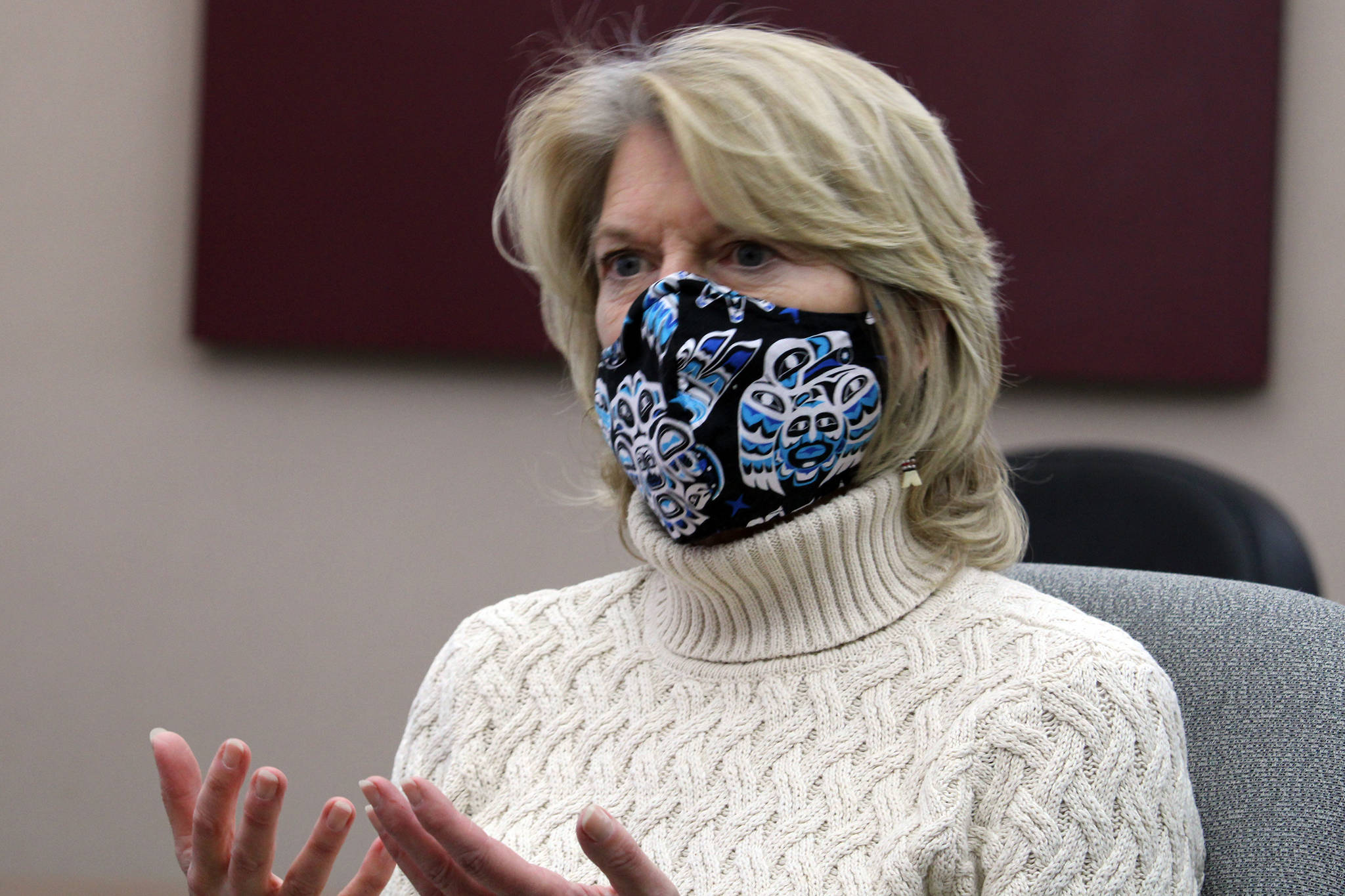With the state and nation still reeling from the COVID-19 pandemic, Sen. Lisa Murkowski said Alaska’s mineral wealth could offer the state a critical lifeline going forward.
President Joe Biden may have started his administration by taking a harder line on environmental issues, including limiting oil production in Alaska, but his plan is going to require something Alaska has a lot of: rare earth minerals.
Rare earth minerals are critical components in the manufacturing of electronics and are essential to many of the new green technologies the Biden administration is looking to invest in, Murkowski said.
“It is something that this new administration is looking at very critically because they want to very aggressively push out renewable energy options and opportunities,” she said in a recent interview with the Empire. “None of this works without critical minerals, it’s important to be able to recognize that not only do we need these resources if we’re going to be a leader, we’re going to need these resources for the jobs they create.”
[Is mining a solution for Southeast?]
It’s not the first time Murkowski has made this pitch, and she’s not alone. At Southeast Conference’s annual meeting in September, Murkowski, Sen. Dan Sullivan and Rep. Don Young, all Republicans, promoted the resource industry as an economic lifeline to Alaska, particularly for Southeast Alaska.
Gov. Mike Dunleavy last year issued an open invitation to the resource industry and has repeatedly used the phrase “Alaska is open for business” in public comments. In his State of the State speech in January, Dunleavy said the COVID-19 pandemic and closures of the Canadian border only further demonstrated Alaska’s need to become more self-reliant — in part through the resource sector.
“While we must continue to be an exporter of resources, we must also ensure that we have the capabilities to create and enhance new sectors of our economy to go it alone in the event of a future disaster,” Dunleavy said in his address.
But the governor’s proposal also reaffirmed his administration’s commitment to the fossil fuel industry, something Murkowski said the Biden administration seemed to be taking a hard line on. But Murkowski said she had already spoken with potential nominees for administration positions with Biden’s government and that the issue of “minerals security” was a priority.
Alaska has large deposits of rare earth minerals and resource companies are already working to extract them. Canadian company Ucore Rare Earth Metals Inc. has a project on Prince of Wales Island called Bokan Mountain, which it says is the highest grade heavy rare earth element project in the U.S.
The company is still working to develop a definitive timeline for the project, said Mike Schrider, Ucore Vice President and COO, in an email, but has intentions to build a milling facility in Ketchikan by the end of 2023. The company is still looking for ways to lower the cost of starting the project, he said.
In 2014, the Alaska State Legislature approved up to $145 million in bonding for the Bokan project through the Alaska Industrial Development and Export Authority. The AIDEA Board recently unanimously passed a resolution formalizing a preliminary due-diligence process to examine funding related to the Bokan project, according to a Ucore news release.
“We are highly encouraged with the enhanced local, state and federal support to change the status-quo regarding the US (rare earth element) supply chain,” Schrider said.
But there’s significant opposition to mining from environmentalists and any project, particularly within a National Forest, is likely to face litigation. Prince of Wales Island is within the Tongas National Forest, which was recently exempted from the Roadless Rule making it easier to obtain permits there. That decision is the subject of ongoing litigation and a review by the Biden administration.
“We cannot base ‘clean’ energy on dirty mining practices. Any increase in domestic mining must go hand in hand with new regulations to protect the communities in which those mines are located,” said Guy Archibald, staff scientist with the Southeast Alaska Conservation Council. “They have been unable to attract significant investment and instead are looking to the State of Alaska to subsidize their operation. AIDEA must conduct due diligence and not invest based on political pressure.”
In an email statement provided by spokesperson Corey Young, Dunleavy said Alaska was blessed to have the natural resources it does.
“America’s dependency on a non-allied, foreign-sourced, critical metals supply chain is an ongoing concern at both the State and Federal levels,” Dunleavy said. “I understand the critical nature of a secure supply chain for rare earth minerals in the United States and know that Alaska can be part of the solution. I have advocated for the permitting and development of these projects throughout the state.”
Murkowski said the state’s resource industry is an area she believes she can build bipartisan agreement around. There was bipartisan interest in the rare earth resource industry and it was an area where Alaska had an edge, she said.
“We’re a resource-based state,” Murkowski said. “In my view, we as Alaskans have a significant role in how we might be able to advance policies that don’t undercut or harm our economies. Why wouldn’t we want to be at the table? Look at what we’re doing as a state as an opportunity to use our innovation and our resources, including everything that we have when it comes to alternative energies.”
• Contact reporter Peter Segall at psegall@juneauempire.com. Follow him on Twitter at @SegallJnuEmpire.

